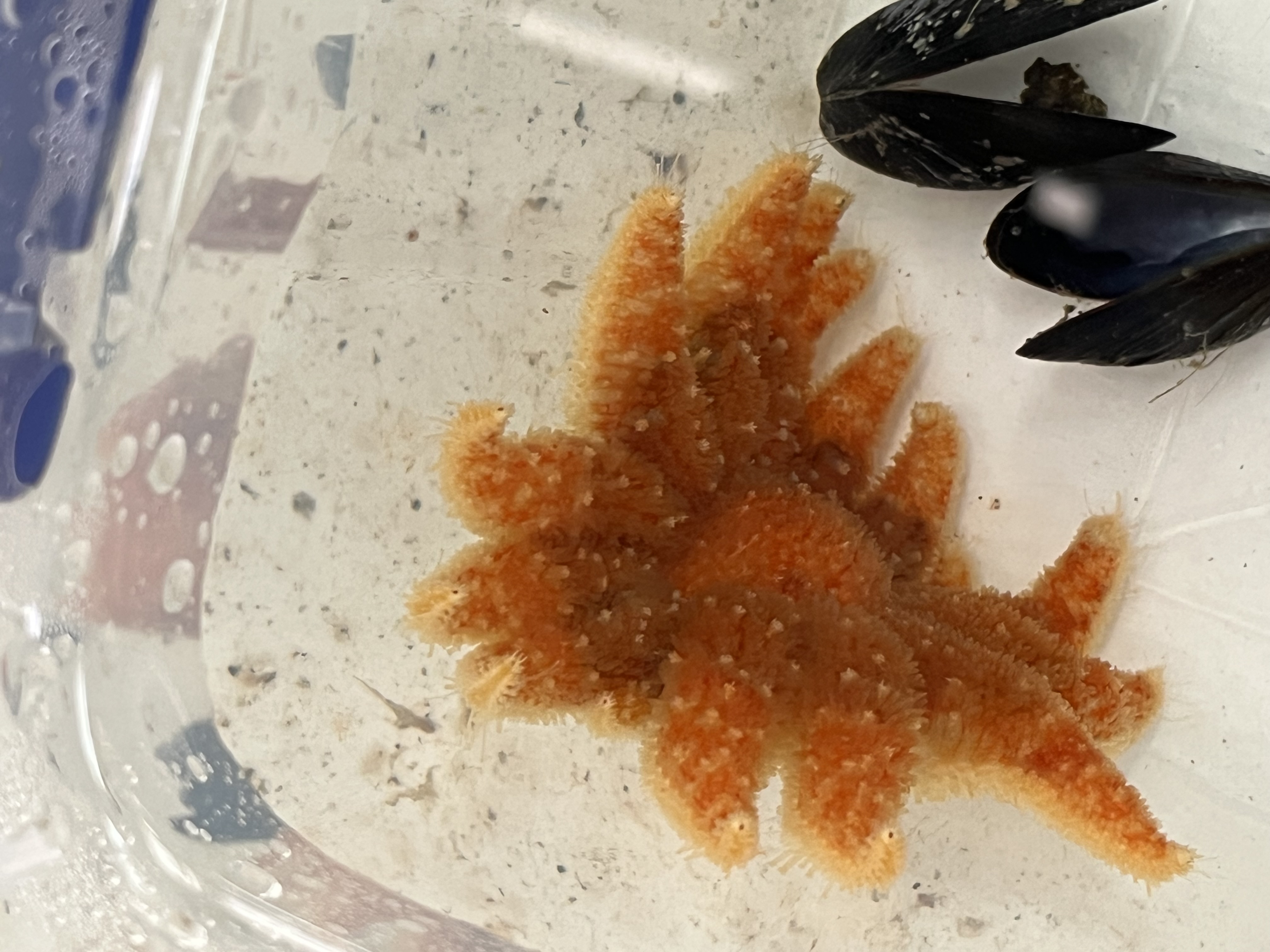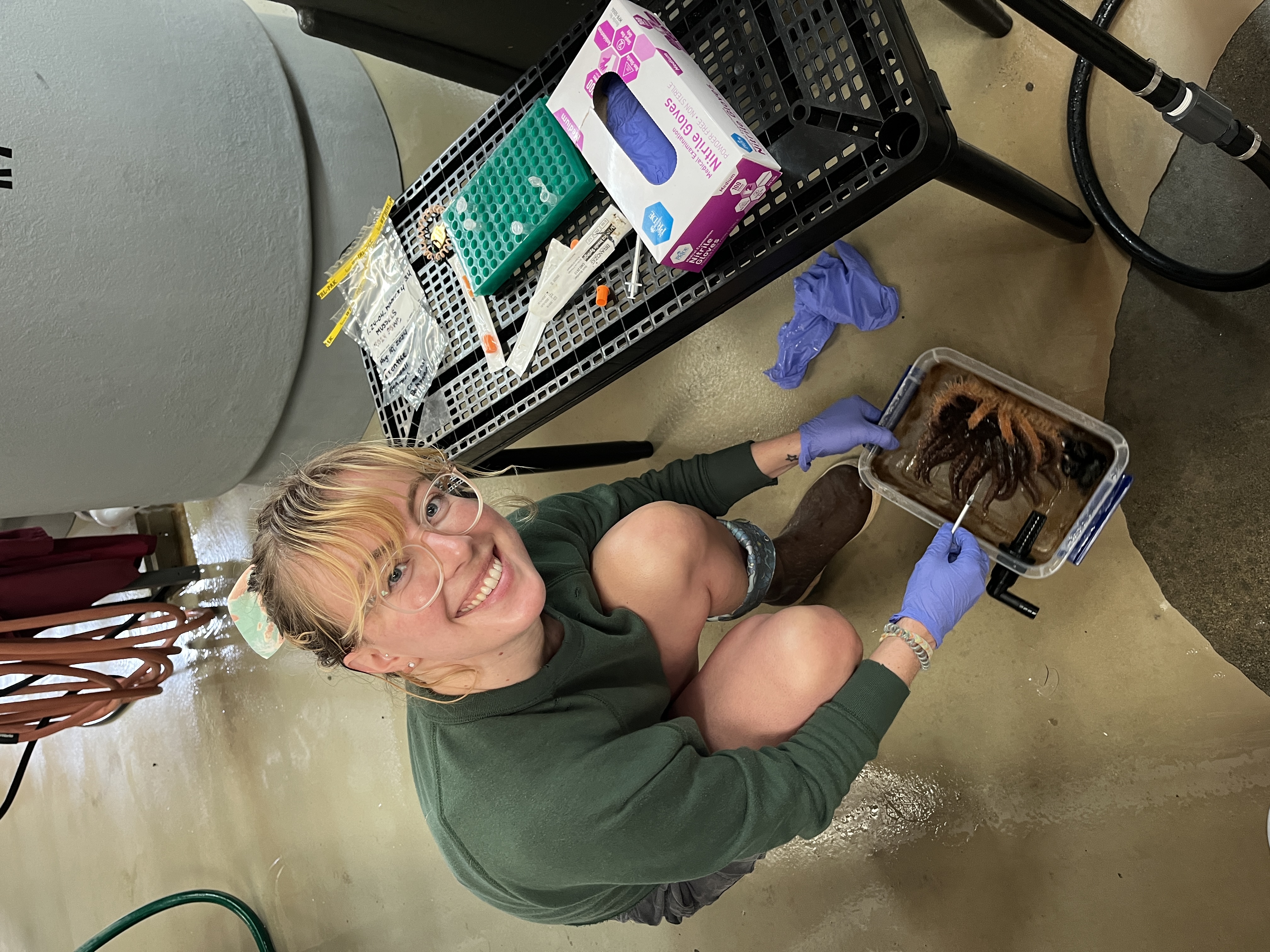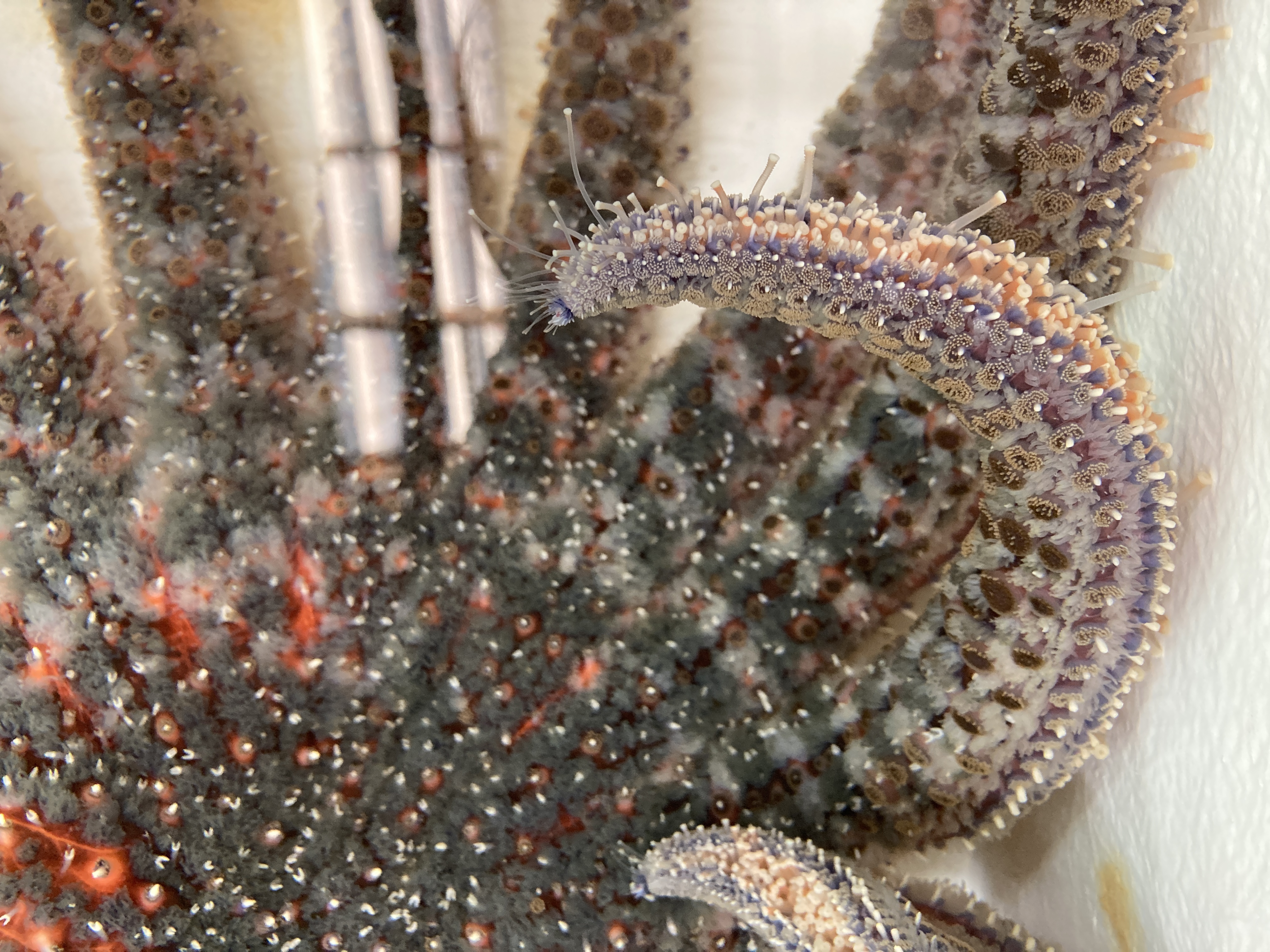
Current work
I’m currently a PhD Student in Aquatic and Fishery Sciences at the University of Washington. I’m advised by Steven Roberts and Drew Harvell. My main focus is on studying the immune response of Pycnopodia helianthoides to exposure to Sea Star Wasting Disease. Since Summer 2021, I’ve been on the epidemiology team of the larger West Coast effort initiated by The Nature Conservancy: The Roadmap to Recovery for the Sunflower Sea Star. I’ve been a part of the team that has been performing disease challenge experiments during the summers of 2021, 2022, and 2023. The two main goals of this work is to (1) identify the causative agent(s) of Sea Star Wasting Disease - see the upcoming work of Dr. Melanie Prentice, the post-doc on this project - and (2) to understand the immune response of Pycnopodia helianthoides when exposed to wasting. Follow along as I work through huge datasets to attempt to investigate the second goal!!
Another part of the PhD work will be to add to and support the multi-year ongoing work of understanding the mechanisms behind eelgrass bed declines in the San Juan Islands, Washington. Prior to starting my PhD program in Fall 2023, I was a lab technician on the eelgrass team through Drew Harvell’s lab at Friday Harbor Laboratories. Her team has been working on answering questions related to eelgrass wasting disease and other environmental factors’ influence on declining eelgrass beds in the San Juan Islands. I began working on this team by assisting with eDNA extractions of water samples in and around eelgrass beds, looking for the pathogen that causes eelgrass wasting disease, Labyrinthula zosterae. I have also assisted with field work - plant tagging and monitoring, and lab-based experimental work. My PhD dissertation will include an eelgrass chapter - more to be revealed!
Background
I have been involved in the School of Aquatic and Fishery Sciences at the University of Washington in various capacities since 2014. I began as an undergraduate volunteer in Steven Roberts’ lab and during that time I completed a senior capstone project on Pacific geoduck, Panopea generosa. The project invovled my dissecting 70 geoduck that were obtained from a nearby hatchery and sectioning gonad tissue to be sent off for histology. I received the histology slides and then determined the sex and categorized the sexes based on reproductive maturity indices that were developed under the guidance of Steven Roberts and Brent Vadopalas. For more information on the capstone project, see the Pacific Geoduck tab under Projects at the top panel of this website.
I then was a lab technician for about 1.5 years in Steven’s lab and assisted the then-current graduate students with various aspects of their projects like hatchery work, data entry, etc. In January 2018 I became a graduate student myself in Steven’s lab and worked on a project under his and Pam Jensen’s guidance to udnerstand the gene expression of Alaska Tanner crab who are threatened by a disease called Bitter Crab Syndrome caused by a parasitic dinoflagellate of the genus Hematodinium. For more information on this project, see the Alaska Tanner Crab tab under Projects at the top panel, as well as any notebook posts under the category tag “bairdi”. Also during this degree, I got a certificate in One Health, which changed my career goals significantly!
Since receiving my MSc in 2020, I continued to work a little in Steven’s lab, writing up my MSc manuscripts for publication. Then, I got the job with Drew Harvell summer 2021 to work on sea star wasting disease, and that brings me to where I am now!
Contact information:
Email: graceac9@uw.edu
GitHub: grace-ac

